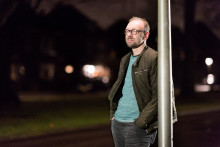We prefer to leave disaster prevention to others, such as our public administrators and scientists. However, I want to take a moment to talk about preventing disasters ourselves. It sounds difficult, but anyone can do it, even you. I will admit that there is not a lot a single person can do against an earthquake or a flood. The proverbial finger-sized hole in the dyke does not exist. Yet what is a disaster, exactly? Formal definitions refer to an event with many victims and widespread damage, yet the Talmud says: ‘Whoever saves a life, saves the entire world.’ That means anyone can prevent disasters. When you do, you should not count on applause. The disaster never happened and most people will be oblivious to the danger you averted. However, the knowledge that you prevented a disaster should be reward enough in and of itself. Let’s get concrete and go to work.
The general principle behind my ‘method’ is that something in our everyday lives that looks dangerous is indeed dangerous and could lead to an accident and therefore a disaster. When things go wrong, that is often because no one took the trouble to do something about the situation. In other words, when you see a fallen branch on the road, you could steer your bike around it and go on your merry way, or you could get off and move it aside. It is really that simple.
I do not mean to imply that I am in any way an expert in disaster prevention. I once spent fifteen minutes observing someone’s remarkable behaviour while slowly sipping my coffee. The person in question ended up drowning.
My plane never caught fire, but the wheels began to spark again as soon as it touched down. When I got off, I told a stewardess about what I had seen. ‘Thank you, but that is quite harmless.’ As professional as that response – clearly intended to calm down a worried passenger – was, I like to imagine that my warning was taken seriously by the airline and that a disaster was averted because of it. All that, just by paying attention and speaking up.







